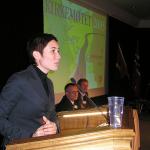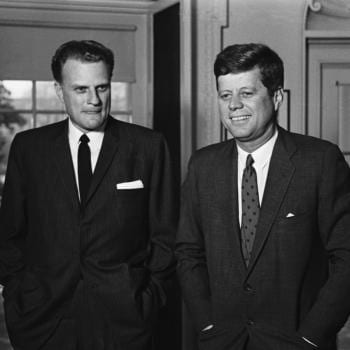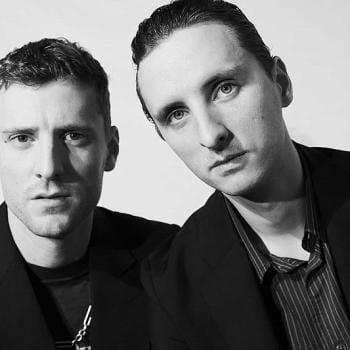Does liberalism contain the seeds of its own destruction? This is not political liberalism of the kind associated with the New Deal, Civil Rights, or the War on Poverty, but the liberalism that gave birth to small government, constitutionalism, and self-reliance. We’re talking about ‘Merica.
Rod Dreher comments on Patrick Deneen’s forthcoming book, Why Liberalism Failed, to render a fairly depressing assessment of our times — one even more sobering than a Presbyterian pastor’s sermon on the Seventh Commandment:
Deneen’s argument is essentially that liberalism failed because it succeeded so well in what it set out to do: liberate the consciousness of individuals from any restraints that inhibit their autonomous choice. To be clear, Deneen does not say that liberalism has been a bad thing; in fact, he says it is simply dishonest to ignore the very good things that have come out of liberalism, and that it is absurd to speak of the pre-liberal past as a golden age to which it would be possible to return. That said, his book interprets the systemic crisis we’re in now, and which he believes (quite correctly) is going to get much worse, because the center cannot hold….
The heart of Deneen’s book is a chapter discussing liberalism as “anticulture.” Drawing a contrast between the political theory that emerged in classical culture, and that prevailed in some form in the West until the Renaissance ushered in the modern era, Deneen shows that liberalism depends on a fundamentally different anthropology. To put it crudely, premodern political thought was based on the belief that man could only be fully human if he learned how to restrain his base passions so that he could grow in virtue. Modern man — “modern” meaning from Machiavelli to the present day — believed, and believes, that man is fully human when he is free to make his own destiny, unencumbered by any unchosen obligations.
Deneen says that liberalism is a “comprehensive effort to displace cultural forms as the ground condition of liberal liberty.” He talks about how Tocqueville worried that people within liberal democracies would eventually be overcome by their individuality that they would forget that they had any obligations to the past or to the future. In time, liberalism might cause people to lose the capacity for self-governance, because they will have become cut off from a sense of being embedded within a culture, a tradition, a past, a future, or anything beyond themselves. In fact, they have to be, if they’re going to become a fully self-determined individual. This is why Moralistic Therapeutic Deism is the natural religion for an advanced liberal society. If you’re going to have a religion, it needs to be one that affirms the path one has chosen for oneself, and that buffers the anxieties of living without ultimate meaning and direction.
That kind of assessment raises two important questions about the relationship between Calvinism and America.
First, why do some political theorists and cultural critics decry Calvinism for such a negative estimate of human nature when it seems that an awareness of human wickedness might be a weighty barrier against the kind of liberalism that Deneen and Dreher lament? One answer, of course, is that Calvinism fails to yield a sufficiently positive estimate of human capacities, one that will allow citizens to participate in public life as responsible actors. But if Calvinism is too negative, what is the positive view of human nature that avoids the excesses of liberalism? Isn’t it a tad naive to think that humans can “restrain” their “base passions” simply by submitting to a community or tradition? Have monks, athletes, or Christian college professors ever gone rogue?
Second, if liberalism relies on a sunny verdict of human nature, then how much did Calvinism have to do with the American founding? Reconciling the free will implicit in the American founding and the original sin affirmed by Calvinist notions of total depravity becomes a puzzle as hard to assemble as regarding prohibitions on smoking as liberal, not fundamentalist.












